Hossein, 42, is on death row in Iran. Born in the northern city of Babol, he was arrested and charged for being in possession of a kilo of crack cocaine after his wife reported him to the police. The authorities are notorious for handing down harsh sentences for drug-related offences.
“My wife turned me in,” he says. “She was the only one who knew about it. When they stopped my car, they immediately searched for a bag that I’d hidden under the driver’s seat. Having said that, I carry no grudge against her because she stopped me from doing something bad.”
Although Hossein appealed the death sentence, the verdict was upheld by the appeals court. According to Hossein, prison has changed him and he is repentant for the things that he did. Today, he says, he is clean and a good Muslim who reads the Koran but that this is rare among inmates, most of whom continue the same work inside prison. He says that abject poverty and desperation to provide for his family pushed him down a dangerous and dark path.
“I hate the fact that after I die, my child will become known as the child of a criminal and a drug trafficker,” says Hossein. “Before I die, I want to ask forgiveness from all the young people that I drove to drug addiction, to all the families that I’ve ruined and to all the mothers that have grieved for their children because of me.”
Even if a new bill - that will outlaw “the death penalty for drug traffickers" - is approved by parliament, his sentence is irreversible as the judge labeled him as a “major trafficker.” This means his execution will go ahead no matter what.
Not All Are Repentant
Although some individuals are rehabilitated while in detention, there are many people who continue to buy and sell drugs regardless of where they are. In fact, drug trafficking happens on a large scale inside Iranian prisons.
Hadi A., 42, has spent the past seven years in jail for carrying 400 grams of crystal meth. Like many of his inmates, he continues to use crystal meth in prison. “This is the end of the line for me,” he says. “I’m on the list of inmates due to be executed soon so why wouldn’t I?”
Following his arrest, Hadi’s wife moved their children to his parents’ house and then she asked for a divorce through the courts. Since then, neither his wife or children have visited. The only person to occasionally come to see him is his old, grief-stricken mother.
“I still traffic drugs in prison because I have no other way to provide for myself,” says Hadi. “I have nobody outside of prison that can send me money. My mother gets by with the help of others. The only thing that I used to own was a small apartment and the courts impounded that because it was where I was making crystal meth.”
According to Hadi, the courts are frequently biased in cases relating to drug offences. “In most cases where they find 100 grams or more of the drug, the judge reduces the death sentence to a prison sentence even if they’re drug dealers as well,” he explains.
Ahmad was put on death row in Tabriz Prison in Eastern Azarbaijan for carrying 40 kilograms of opium. But he was transferred to Rajaei Shahr Prison in Karaj after he was able to prove that he had only been carrying the drug and was not involved in dealing it. “When they arrested the three main gang members, they were sentenced to death,” he says. “But they changed my charge from trafficker to carrier and so they reduced my sentence to 15 years in prison.”
According to Ahmad, the court is still waiting to receive a large proportion of the drugs money because the gang leaders laundered it at the request of their families.
All About The Money
“Major drug traffickers are treated more leniently because they have big pockets,” says Nemat, a prisoner at Rajaie Shahr Prison. “The courts often reduce their death sentences to prison terms after a while. It’s only the small, poor offenders that get the short end of the stick.”
However, Nemat, who was previously held at Ghezel Hesar Prison where hundreds of prisoners are on death row, explains that there is one exception to the rule that wealthy drug offenders are treated more kindly.
“The people who own the labs that produce synthetic drugs get the death sentence. As long as it’s the Narcotics Police that finds them, this can’t be changed,” Nemat says. “Having said that, some of the people who’ve been arrested by regular police say they’ve managed to water down the evidence by paying bribes.”
Reza, another inmate on death row, was arrested with other members of his gang. Over the past few months, he has watched 20 other fellow prisoners be executed. However, his sentence is yet to be carried out. His cellmate is also on death row for multiple arrests relating to the drinking of alcohol. He is waiting to be hanged.
More Effective than the Gallows
“I traffic drugs inside the prison whenever I get the chance,” says Reza. “I need money because prisoners have expenses. Prison food is extremely bad and the only way for me to make money here is by buying and selling drugs.”
Reza’s brother was executed on similar charges but this has not put him off. “The death penalty doesn’t stop crime. It doesn’t even reduce it,” says Reza. “The bill to stop the death penalty for drug offences doesn’t violate Sharia law. If drug-related offenders are forgiven and treated with more kindness, that’d be a much more effective way than threatening the gallows.”
News of the bill, which has the support of 70 members of parliament, quickly spread among inmates in Narcotics Wards. The prisoners welcome the development in the hope that they might one day have their death sentence revoked; aspirations that have undoubtedly and sadly gone through the minds of death row inmates a thousand times over.











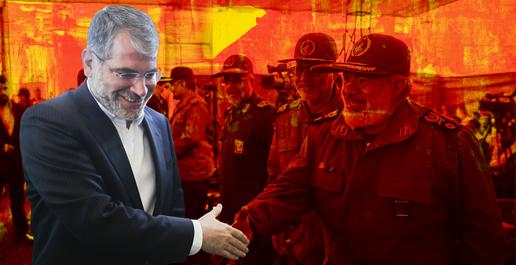
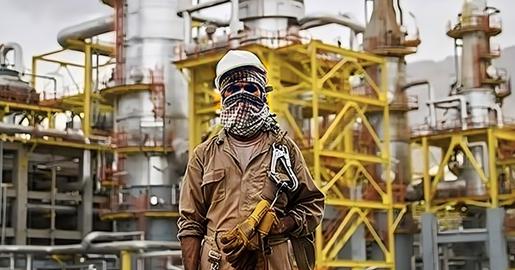

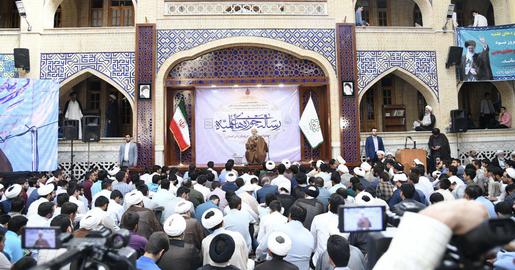


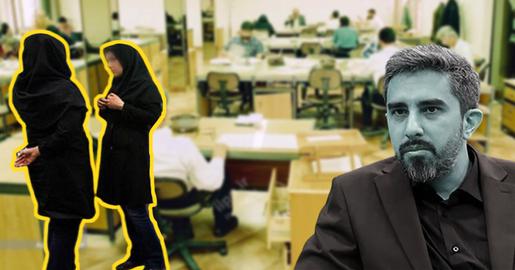



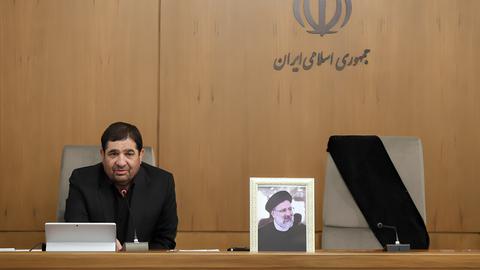


comments